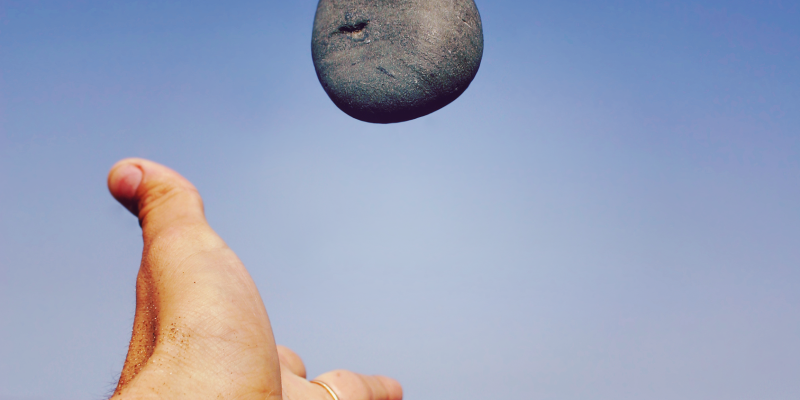The Preface
In Casting Stones 1, I bemoaned the moral relativism of the Nigeria of my youth. I look back now, some thirty years on, indeed a generation away on how quaint my moral dilemma must seem to the Nigerian youth of today. Considering that most Nigerians,(perhaps as much as 70% if you consider our demographics were not born when these two articles where written) will fail to really get my point then and now.
In this second part, I anchor my narrative on the issue of the political appointment of a certain Joseph Akpeti Orho who was found guilty of corruption by a judicial tribunal in 1967 and declared ‘NOT A FIT AND PROPER PERSON TO HOLD PUBLIC OFFICE IN FUTURE’ In this face of this indictment Mr. Joseph Orho was nonetheless appointed by then President Shehu Shagari for a high political position. Now fast forward to today and see if anything has really changed. According to news sources here
Mr Danladi Irmiya Kifasi has just been appoint by President Goodluck Jonathan to be the new Head of Service, meaning that he is now in charge of the Nigerian Civil Service, despite having been indicted on fraud charges in 2000 and declared unfit for public service. These facts have actually been gazetted in a Government White Paper here
So what has changed? Absolutely nothing it seems. We keep doing or passively accept the doing of the same things but somehow expect different results? When we fail to hold our leaders accountable for their misdeeds, we are in fact actively supporting the collapse of our society. We are in denial about the laws of causality-Cause=Effect.
We are the ones who have chosen to remain in Omelas. Please read this to fully understand the context here.
To take a deeper dive please download this poignant short story, read deeply and then ask yourself if you are part of the ones who walked away from Omelas; if not, ask yourself why?
A recent front page story carried by the CONCORD, has presented me with a case study too poignant to ignore. It deals appositely with ‘casting stones’, and it has generated a trilogy of which this is the second part.
The story opened thus: “one of President Shehu Shagari’s ministerial nominee may have problems when he faces the National Assembly for screening. He is Mr. Joseph Akpeti Orho, a minister in the First Republic. The problem that Mr. Orho is likely to face concerns the findings of a tribunal of inquiries which in 1967 looked into his records as a minister and adjudged him as “NOT A FIT AND PROPER PERSON TO HOLD PUBLIC OFFICE IN FUTURE”.
Mr. Orho, according to the story, quoting the findings of the tribunal, is said to have entered his ministership with £146.13:6d in his bank account, but left with an unaccounted for amount of £13, 987:8s. Under the present circumstances and our calloused sensibilities as regards morality, you are forgiven if you think that this whole story is a spinoff of the Cecil Parkinson affair in Great Britain. It might sound ridiculous if not outright anachronistic to the countless cynics abound, but it is true. The senate is actually trying to debar a presidential nominee from holding public office on account of the paltry sum of £13, 987:8s. Since when did proven cases of corruption inhibit the appointment of public officers?
I honestly had thought that proven cases of corruption in your curriculum vitae actually enhanced your chances, giving you an edge over any naïve inexperienced and honest to goodness applicant.
If ever there was one paramount prerequisite for holders of political power, public officers, and leadership, it must necessarily be corruption. And the most pungent irony of the situation, is that that veritable ‘House of Horrors’ actually has the temerity to make an issue over something as classic as exportation of public funds.
It would be recalled that it was the same House of Assembly that refused to ratify the Code of Conduct Bill, throwing the Chairman of the Code of Conduct Bureau Isa Kaita into a fit of geriatric despair. Never mind the new membership of the Senate, its leadership has remained the same. Joseph Wayas has kept “mum” over the U.P.N sponsored expose of his alleged one million naira (or is it pounds?) house in London. And there are thousands of examples running through party lines, through ethnic boundaries, and running through both elected and appointed government officials of individuals who suddenly and ‘unaccountably’ have become rich – overnight.
It didn’t stop one from becoming an attorney-general; it didn’t stop another from becoming party chairman, and aspiring for presidency in ’87, so why should it stop Mr.Orho?
My argument is based on what I wrote last week, and if I might be permitted I will quote myself: “I am sure that society has enough evidence to indict all those liars and thieves who through the years masqueraded as leaders, statesmen, men of probity and patriots. But it will not, because society herself is guilty. The charade of going through the motions of justice is enough… why wash her dirty linens in public? Occasionally it is enough to flash dirty underwear to titillate our perverted sense of justice, but the bushels of filthy smelly clothing must be kept hidden away from prying moralistic eyes”.
And in part also the shameful fact that very few of the outgoing members of Shagari’s first administration actually declared their assets. That aspect of public accountability has again been convincingly swept under and into the Sahara that lies the carpet.
I am not romanticizing on corruption; neither am I making a defence for Mr. Orho, all I ask is that “physician heal thyself”.
TUNJI LARDNER for THE PUNCH, OCTOBER 1983



